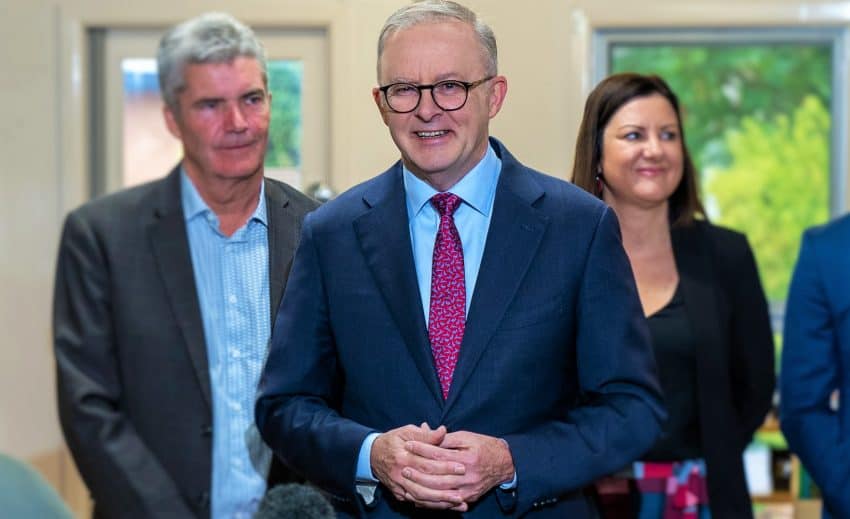A wide-ranging Pacific assistance package covering environmental, military, and economic support for Australia’s closest neighbours will be unveiled in Tuesday’s budget, as the Albanese government moves to reassert influence and push back on China’s growing ambitions in the region.
The ABC has confirmed the additional “whole of government” funding, which is likely to involve the deployment of more Australian military personnel and federal police officers, will be worth “hundreds of millions of dollars”.
Sources with knowledge of the budget package say cabinet’s razor gang only approved the “substantial” investment in the past two weeks, after first examining more expensive policy options that involved far greater spending in the Pacific.
One official familiar with the final details of the budget package said it “stretche[s] across multiple government agencies” and reflects what Pacific leaders have told the Australian government they most require in terms of assistance.
“This draws on elements from across the Australian government to bolster the support package for Pacific Island nations,” the source confirmed, speaking on the condition of anonymity because they were not authorised to comment publicly.
“Prime Minister Anthony Albanese and Foreign Minister Penny Wong have travelled extensively in the region and spoken to their counterparts about what they most need, so that’s reflected in this support package.”
The final budget figure for additional spending on the Pacific is tightly held inside government, but the ABC understands it will reach hundreds of millions of dollars, and likely to top $1 billion (US$669 million), over the next four years.
Practical measures included in the package include economic and security assistance with problems such as illegal fishing, as well as improved processes for Pacific Islanders to acquire visas to Australia.
There are also expected to be changes to the Pacific Australia Labour Mobility (PALM) scheme, which allows thousands of workers from the region into Australia for short-term work.
A security figure involved in the policy said it would result in a “larger Australian footprint” in the Pacific, including more Australian Defence Force (ADF) and (Australian Federal Police (AFP) personnel assisting smaller nations with various tasks as needed.
A third government source said the package would focus on “key Pacific priorities” across a broad range of areas, but downplayed suggestions it would involve any large increases in foreign aid spending.
Since being elected in May last year, Labor has prioritised deeper engagement with regional neighbours, and the foreign minister has now visited all of Australia’s 17 fellow members of the Pacific Islands Forum.
Beijing’s growing influence in Australia’s Pacific neighbourhood has spooked policymakers in Canberra, particularly last year’s signing of a security pact between China and Solomon Islands.
Last month, in an address to the National Press Club, Senator Wong outlined the importance of the Pacific to Australia’s own security and to the “challenges of our time”.
“While our strategic circumstances have changed in the last 50 years, our geography has not, and nor has the centrality of the Pacific to our own security,” she observed. “With the return of strategic contest to the region, this security is enhanced when we work together, when we respond to Pacific priorities, and when we respect Pacific institutions,” she said.
